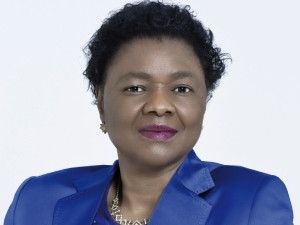
South Africa's telecommunications industry is well positioned to progress as a major contributor to the economy, and fibre is set to play an enormous role in bridging the digital divide.
Speaking to an audience of over 300 attendees at the opening of the sixth annual Fibre-to-the-Home (FTTH) Council Africa Conference in Cape Town this week, president of the FTTH Council Africa Richard Came said despite ongoing challenges facing the ICT sector, the industry has contributed substantially to job creation in South Africa.
Themed "The Future of Smart", the conference was focused on high-speed broadband fibre and its crucial role in the future of communications in Africa.
Came said all the major elements of fibre infrastructure are in place in SA for the technology to play an increasing role in connecting people.
"The successful laying of the undersea cables eight years ago, followed by the mobile operators connecting towers with fibre, and the rollout of intra- and inter-metro connectivity have seen fibre playing an increasingly critical role in the business and residential sectors," said Came.
Open access
The principle of open access, defined by the FTTH Council as the situation where multiple retail service providers may use the network on an equitable basis, and compete to offer their services to end-users, will be a dominant feature of the rollout of fibre in SA.
"Open access will happen irrespective of any regulatory intervention - it's the model that will work most efficiently and effectively from a commercial and economic perspective," said Came.
Open access will happen irrespective of any regulatory intervention - it's the model that will work most efficiently and effectively from a commercial and economic perspective.
Richard Came
Referring to the National Integrated ICT Policy White Paper approved in September by Cabinet, Came emphasised industry's hope that the government will play a more active and constructive role to facilitate a more rapid rollout and deployment of fibre, for the benefit of the country.
Fourth industrial revolution
Guest speaker at the conference was deputy minister of telecommunications and postal services, Hlengiwe Mkhize, who highlighted the importance of SA positioning itself to take advantage of "the fourth industrial revolution".

Mkhize referred to the importance of high-speed broadband fibre being in line with the National Development Plan Vision 2030, which identifies ICT as underpinning the development of a dynamic and connected information society.
She said government has prioritised certain focus areas for urgent broadband connectivity.
"The first phase of broadband rollout should be to education, focusing on schools, ensuring children in even the most rural of areas have access to computers and the Internet. We see this contribution to education as one of the cornerstones of our approach to the fourth industrial revolution," said Mkhize.
Healthcare and the transport sector would follow.
"The Department of Science and Technology has developed an ICT research and development innovation roadmap to support South Africa's strategic objectives of increasing the impact of ICT on society and developing the economy," said Mkhize.
"This roadmap presents a vision that will enable our country to become a significant player in the global ICT arena. It provides a coherent framework and single coordination point for South Africa's future investment in ICT research, development and innovation."
Share